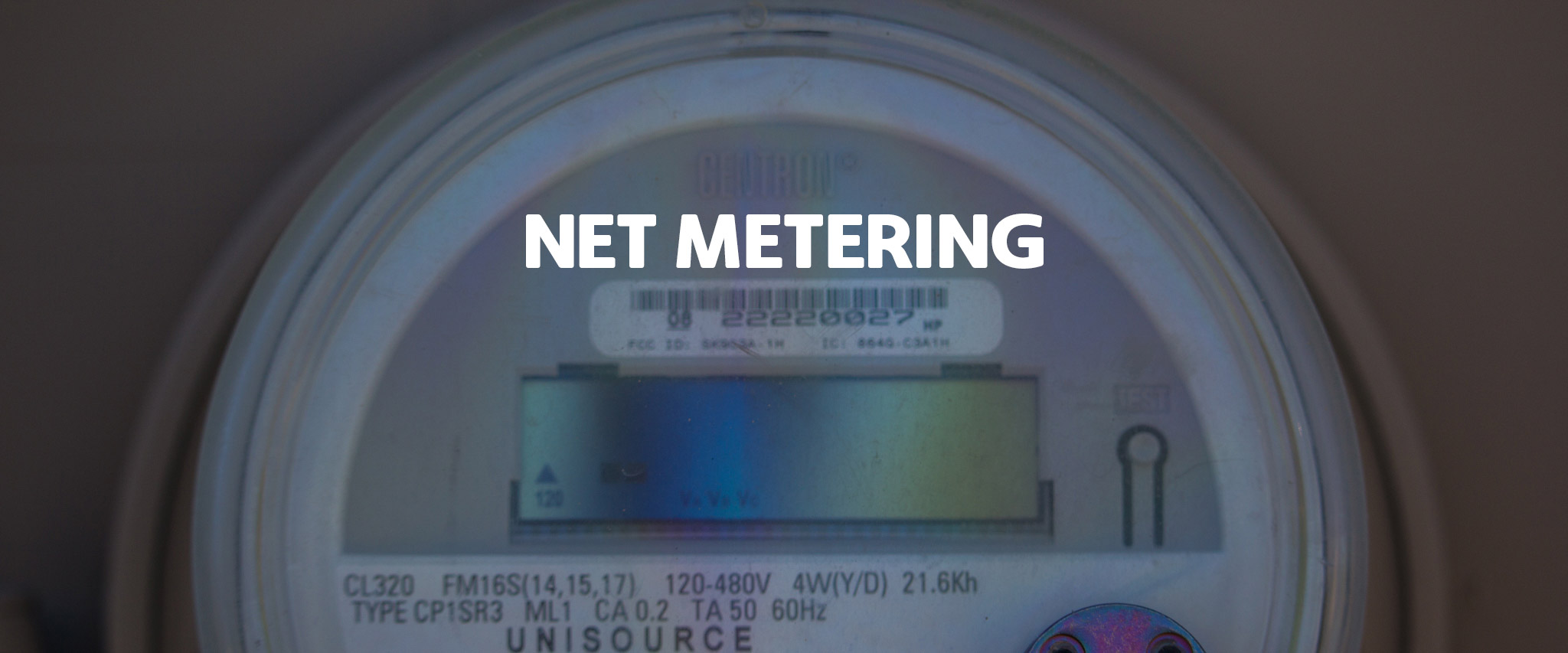

Net metering no longer exists in Arizona. You can learn more about how solar saves you money on our Solar and Your Bill page.
Net metering is a billing mechanism that allows utility customers who have solar to receive credit for excess energy they produce and add to the grid, and to store this credit to draw upon when solar isn’t as productive. You only pay for the net amount your home uses from the utility grid, plus any basic service charges and taxes.
When your solar electric system is installed, your utility will install a special “net” meter in place of your existing utility meter. This meter measures both the energy delivered from the grid to your home or business and the energy received from your solar electric system, and reports this information to your utility.
As your solar electric system produces electricity, it is first used by any loads you have turned on, such as your lights, refrigerator, and electronics. When you produce more electricity than you’re using, your utility meter “spins backward” as you feed your excess energy back into the grid. If you need more power than your system is producing (such as at night or on cloudy days), you can cash in your energy credits.
At the end of each billing period (which will vary by utility), your utility will bill you for the difference between what they have delivered to you, and what they’ve received from you. If you’ve sent more energy to your utility than you’ve used from the grid during that time, those credits will “roll over” to the next month.
At the end of the net metering year, your utility will zero out any credits in your net metering account, compensating you with a bill credit at the wholesale rate (typically about $0.025/kWh). The end of the net metering year depends on your utility, but this usually occurs on your October or November bill. We carefully design systems so that customers are unlikely to have any remaining net metering credits at that time, since the wholesale rate is so low.
Different utilities have different net metering policies, fiscal periods and payback plans. Most U.S. states (43 states plus Washington D.C, and four territories) have a net metering policy. Arizona’s net metering rules were enacted in 2008, and are part of the Arizona Corporation Commission’s rules.